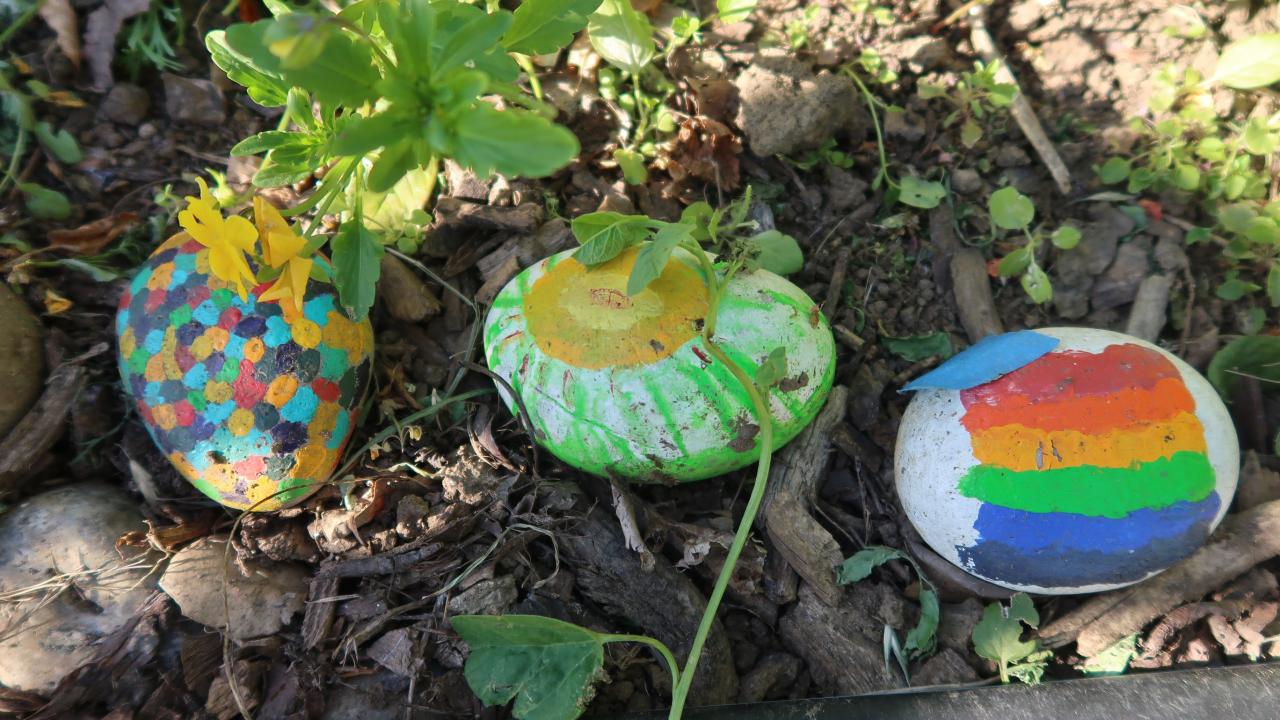Lavender reaches toward the sky. Carnations and pansies wave slightly in the breeze. Roses swell with the sun.
Diversity blooms within The Queer Bed, a floral testament to beauty, love, and empowerment within the queer community.
Created at the UC Davis Ecological Garden, the garden not only provides a safe, loving space for all queer people, but also is a space to reflect on beauty within nature, and what it means for a plant or person to be natural.
“It’s an announcement that we are out here,” said Ebbie Burk, a fourth year sustainable agriculture and food systems undergraduate. “It’s an explicit place to come be yourself.”

Originally created as a designated, physical space for queer farmers and gardeners, the garden has been handed down through the years since its creation in 2017 by Pine Wilder. Burk now takes pride in stewarding the bed.
The flowers grown within the garden are either medicinal plants or pay tribute to a specific aspect of the queer community and its history.
Take the tour
Some flowers, like pansies, are testaments to reclaiming pride. The term “pansy” has been used as a derogatory slur, particularly for gay or effeminate men.
Planted at The Queer Bed, pansies are now an empowering symbol and a positive term within the queer community.
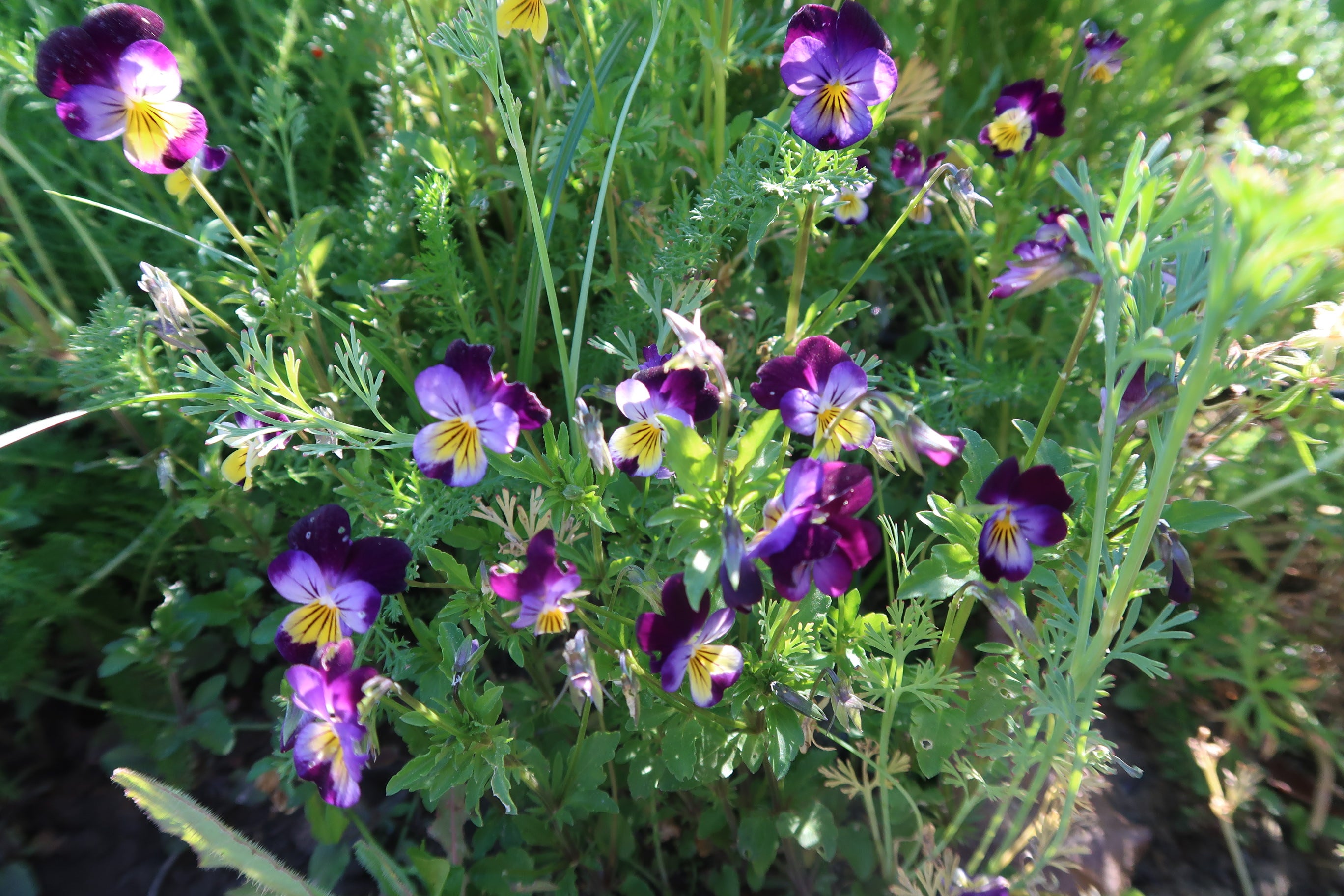
Its planting is also an ode to “The Pansy Craze” in the 1920s though 1933. This was a decade of new and increased visibility within the queer community through drag performances.
“The public opinion of queer people was negative, but their parties and talent and shows were coveted,” said Burk. “That binary is really interesting.”
Some flowers break the binary.
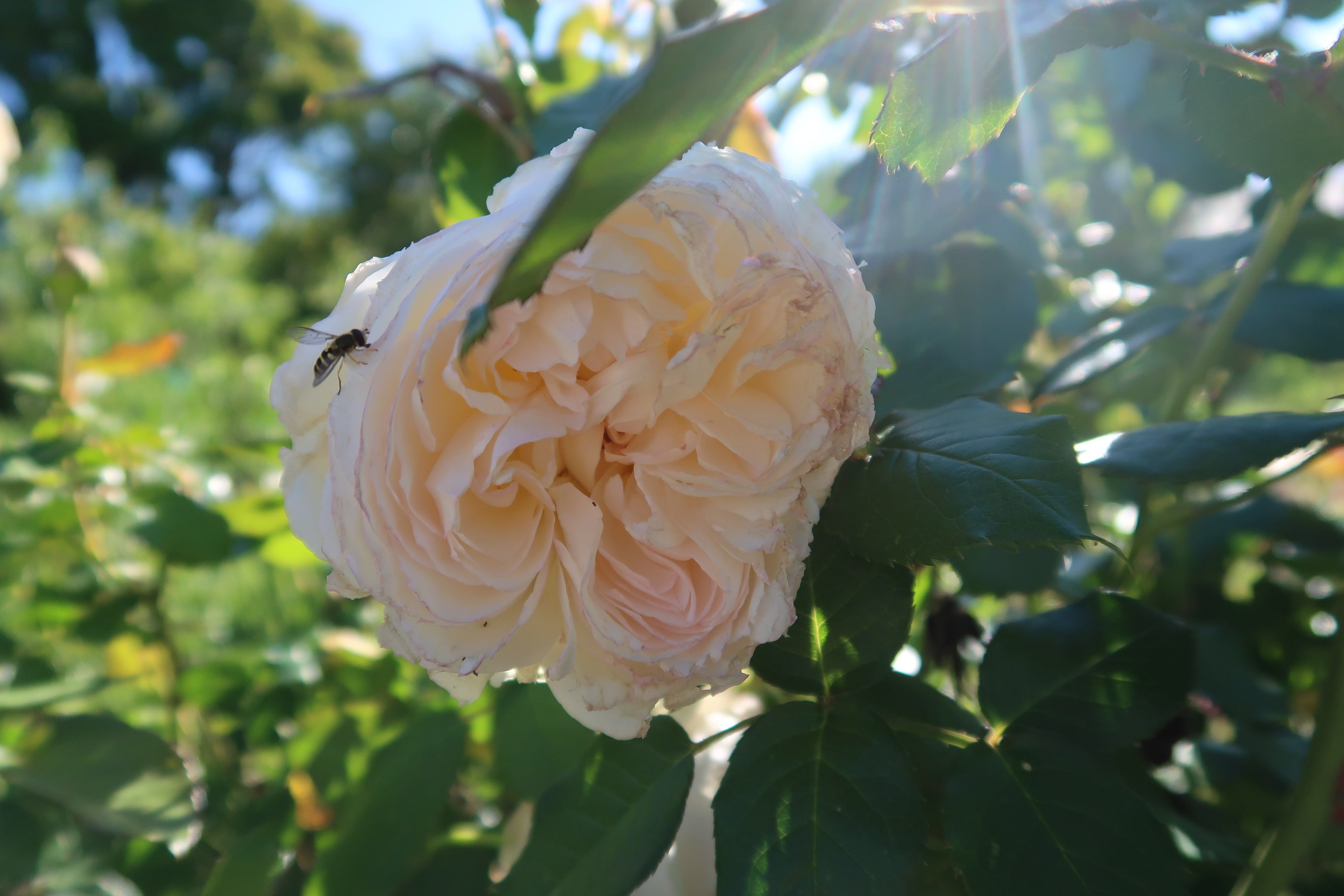
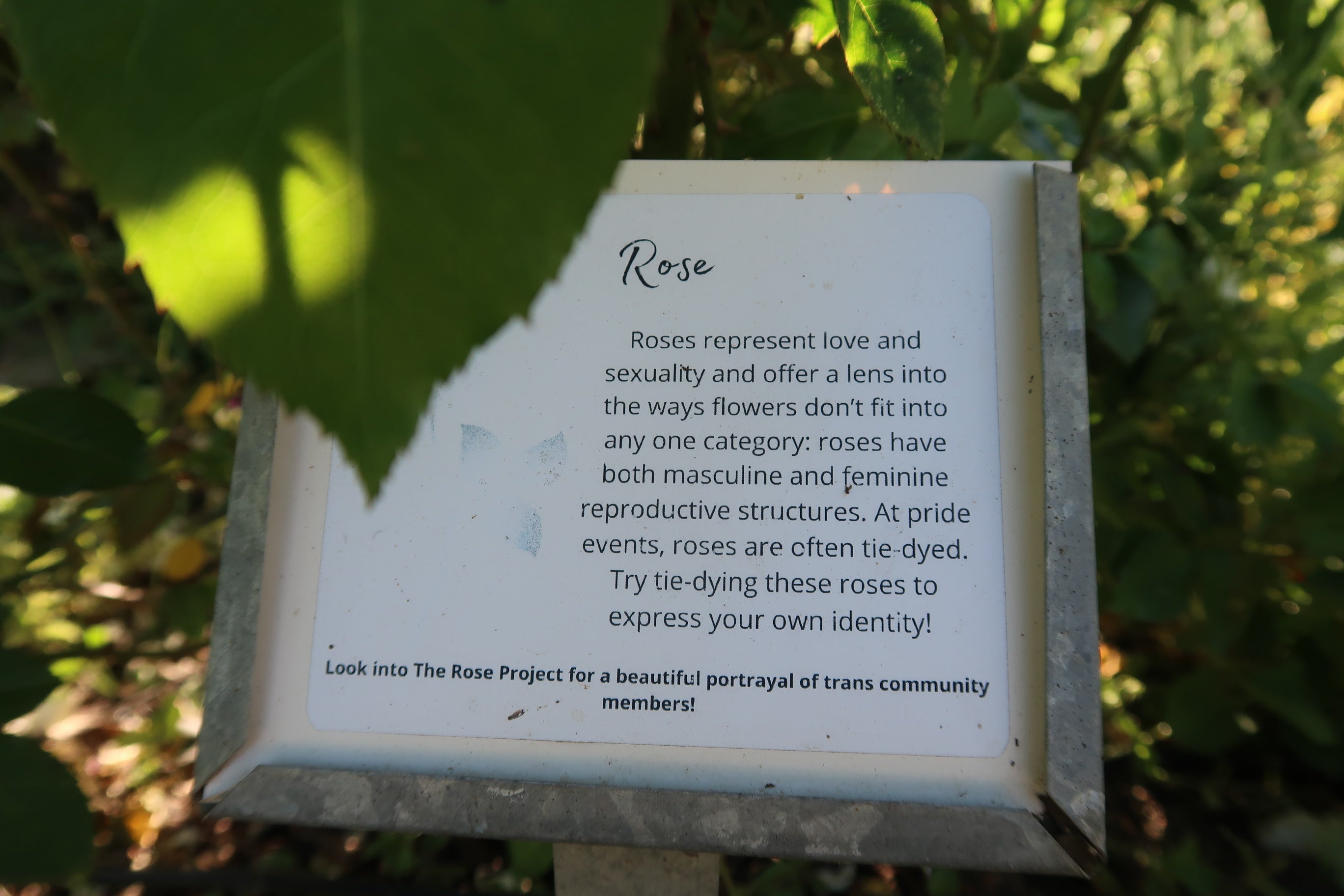
“What does it mean for a plant or person to be natural?” asked Burk.
Roses have represented love and sexuality for centuries, featured as Greek goddess Aphrodite’s favorite flower. This “love” flower also has both male and female reproductive structures, termed botanically “perfect.”
“The term describes something being perfect, even though it’s different,” said Burk. “They’re also called bisexual or complete flowers for that reason.”
To Burk, these flowers break binaries and challenge the human norms of being perfect, emphasizing that everyone is complete.
“The rose is just one of thousands of flowers and plants that have some ambiguity in their body parts and how they reproduce and how they exist,” said Burk. “The rose can reflect transness and the completeness of queer bodies. Nature is not binary.”

But even in nature, we deem things “unnatural.” Carnations are one such flower labeled as “odd” and are celebrated in The Queer Bed because of it.
Gay Victorian poet Oscar Wilde wore green carnations on his lapel, which quickly became a silent symbol and signal for homosexuality in the early 20th century. At the time, being openly gay was a criminal offense.
“Green flowers are very, very, very rare,” said Burk. “But they do exist.”
Purple is another color based deeply in history and representing queerness and love.
Ever since classical Greek poet Sappho depicted a female lover wearing garlands of violets, purple flowers like violets and lavender have been used by women who love women to discreetly express affection and love.

“I think it’s really sweet to be like, ‘Hello lover, here are my purple flowers for you,’” said Burk. “In case anyone wants to do that, we have some growing here.”
Lavender is also medicinal, and it’s surrounded in The Queer Bed by a plethora of other medicinal plants, such as ashwagandha and mullein.
“They have properties for soothing and healing and calming, which are all things that we all need,” said Burk. “You could make a whole tea mixture in the bed if you wanted to.”
Standing on the shoulders of history
The garden itself is shaped in a triangle— a shape with a dark, but reclaimed, history for the queer community. In Nazi concentration camps, a pink triangle was a badge of shame for gay, male prisoners. Now, it is a symbol of liberation, pride, and resistance.
Through stewarding the garden bed, Burk learned more about queer history and hopes that others come and do the same.
“All progress made in policy and in society is because we’re standing on the shoulders of everyone who came before us,” said Burk. “It’s important to have gratitude for the people who had to fight so hard and continue to do so.”
Now, anyone is welcome to explore The Queer Bed at UC Davis. Burk invites people to come journal, read, have lunch, do homework, or just exist in the space. For those looking to volunteer, the UC Davis Student Farm offers many internships that offer stewardship opportunities.
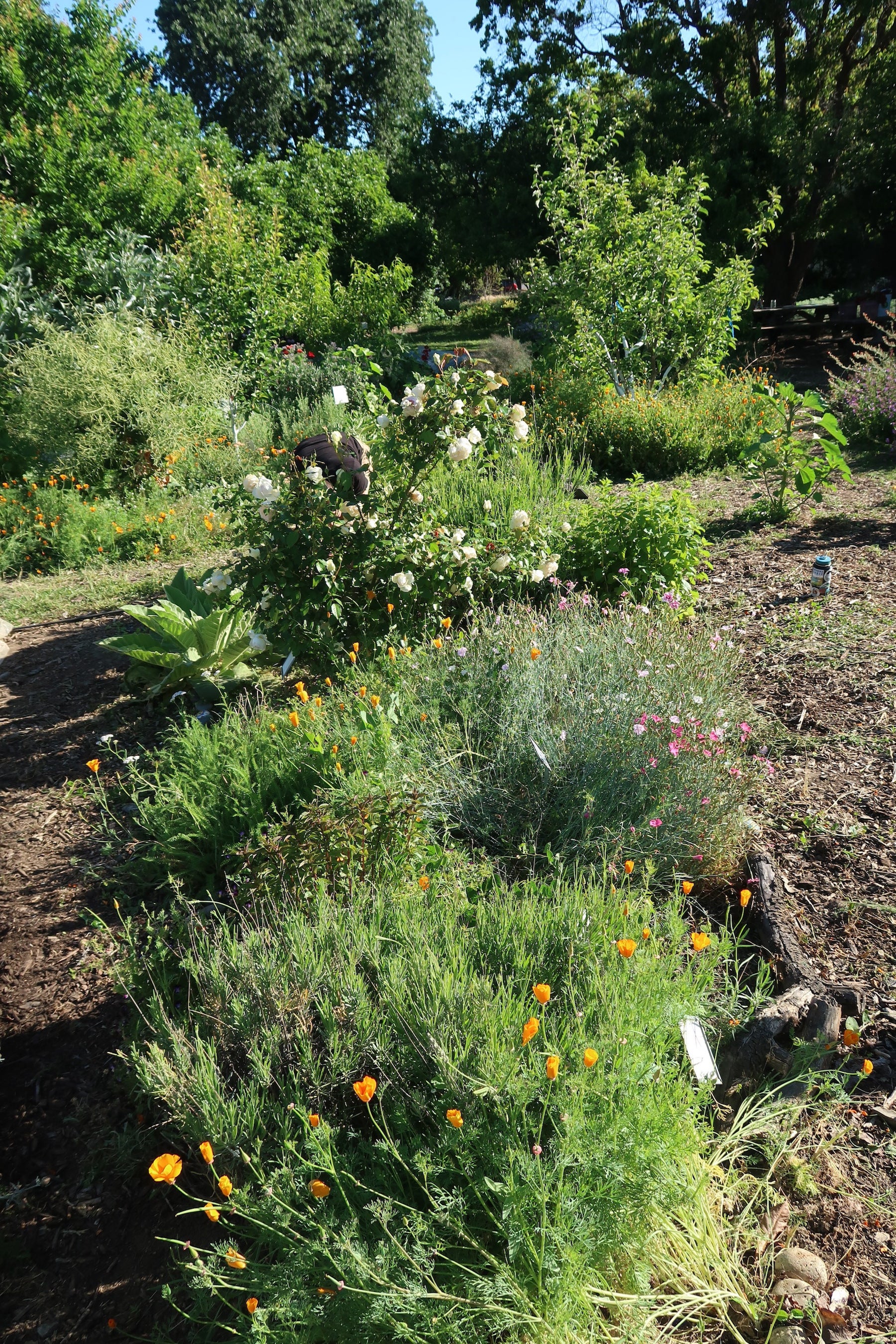
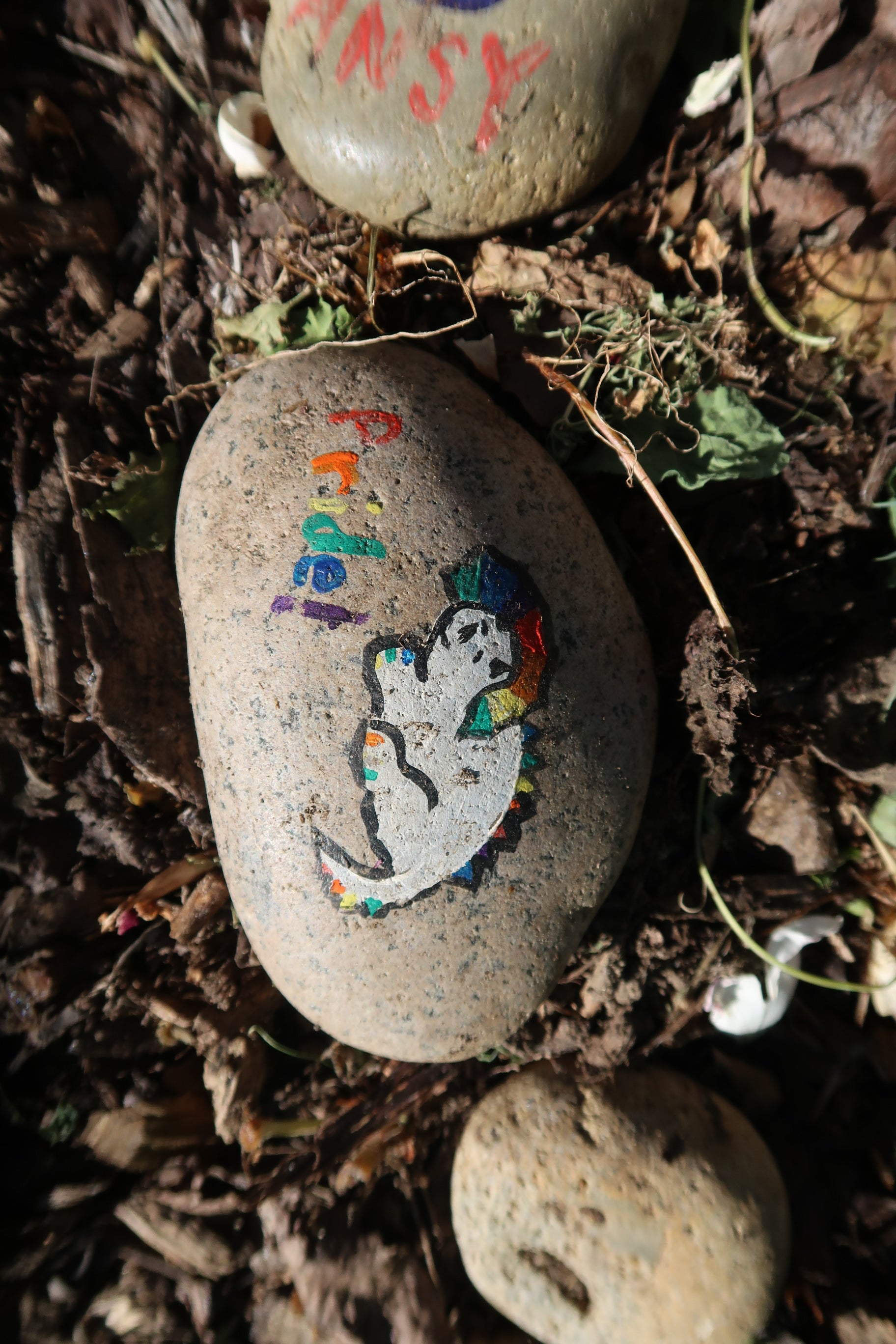
Burk will graduate from UC Davis this spring but hopes The Queer Bed will live on through new and current students.
“We are part of nature,” said Burk. “There is so much diversity and different ways that bodies can be. We are all perfect.”
Malia Reiss is a science news intern with UC Davis Strategic Communications. She studies environmental science and management at UC Davis.
Media Resources
Kat Kerlin, UC Davis News and Media Relations, 530-750-9195, kekerlin@ucdavis.edu
